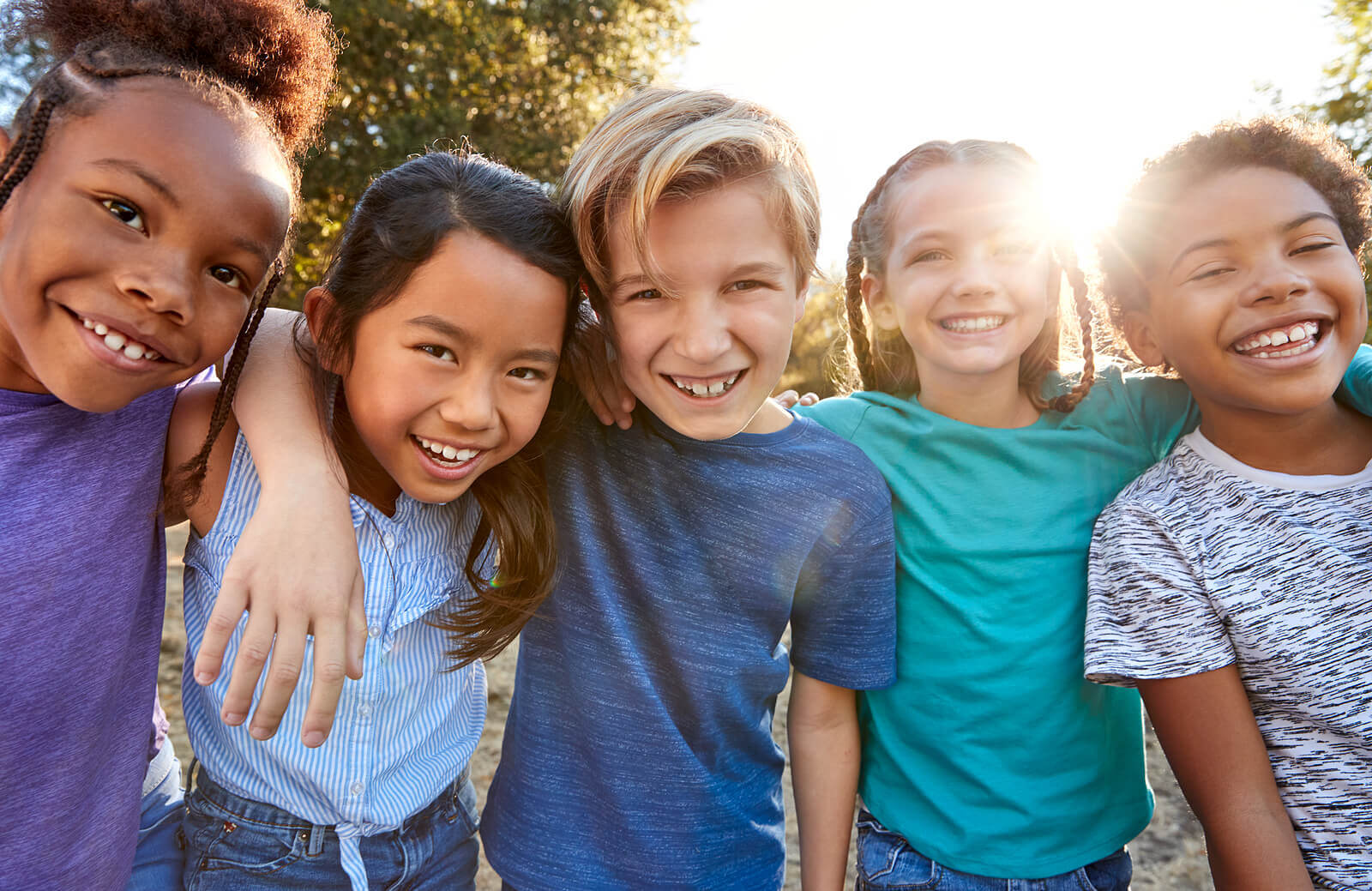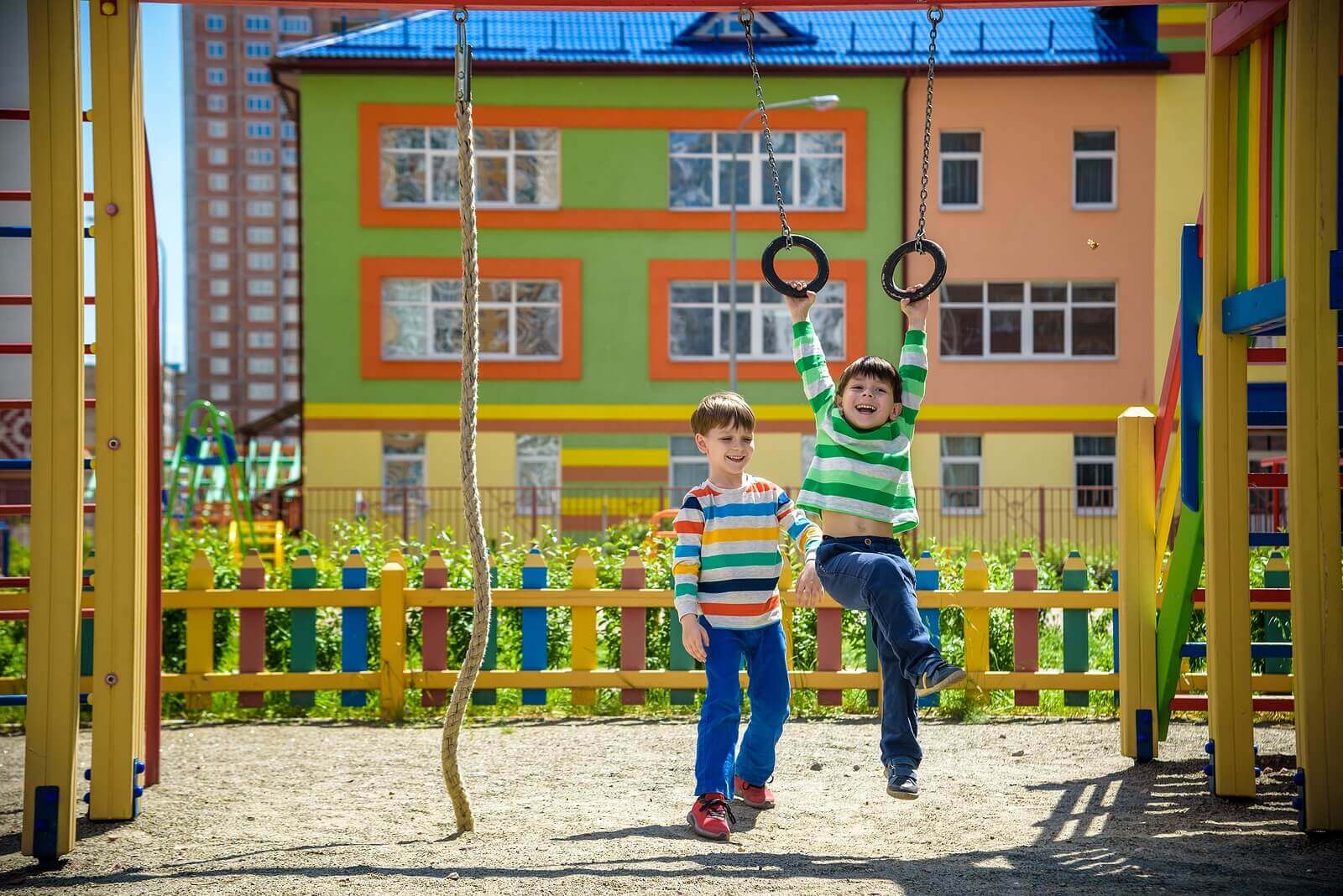Social Intelligence in Children: What You Should Know

According to Daniel Goleman, famous psychologist and writer, emotional intelligence is: “The ability to recognize our own feelings and those of others, to motivate ourselves and to handle our emotions well to have the best for ourselves and for our relationships.”
Then, this intelligence is divided into: intrapersonal intelligence and social or interpersonal intelligence. In this article we’ll talk about social intelligence in children and its development throughout childhood.
First, you must understand that social intelligence is the ability to relate to other people effectively. This happens by understanding other people’s intentions, motivations and desires. Moreover, it’s about being empathic and putting in practice certain social skills in order to form healthy relationships.
“Empathy and social skills are social intelligence, the interpersonal part of emotional intelligence. That’s why they look alike.”
– Daniel Goleman –

Social intelligence in children
Children start developing social intelligence from the moment they’re born. And, family is their first socialization context. At first, babies interact constantly with their caretakers, usually their parents, in order to fulfil their basic needs.
Eventually, this relationship becomes more complex, and family members turn into key elements in the child’s education and proper development.
In this sense, family has the function of promoting proper emotional standards, values, role models, etc. What’s more, all of this must happen within a positive environment, where communication, affection and mutual respect should come first.
In addition, school must work on social and emotional aspects with children. They should teach them, in a practical way, relationship skills, collaboration and cooperation with their peers.
Don’t forget that school and family are the two social contexts where children first relate to others. Therefore, they stand in a privileged position when developing social intelligence in children.
Social skills that children should learn
During childhood, there are skills related to social intelligence that children need to acquire. Here’s a list of the most important ones:
- Aability to share emotions, feelings, thoughts, opinions and beliefs.
- Development of communicational skills.
- Ability to put into practice active listening.
- Ability to understand social rules and constructions.
- Ability to understand other people’s emotions.
- Ability to adapt to different social situations in everyday life.
- Development of self-regulation and self-control.
- Identification of conflicts and learning to face them properly.
- Ability to anticipate other people’s reactions and behaviors.
Importance of developing this intelligence during childhood
According to Lidia Guevara Gomez, primary school teacher, children who develop a high degree of emotional intelligence, thus social intelligence, have:
- More friends.
- More predisposition to learn.
- Less behavioral problems.
- More confidence and trust in themselves.
- Positive self-esteem.
- More resilience.
- More empathy.
- Better resources when it comes to conflict solution.
- Less chance to adopt self-destructing behavior (drugs, alcohol, etc.)
- More ability to control impulses.

In the end, it’s exactly as Daniel Goleman stated:
“The more social intelligence you acquire, the happier and stronger you’ll be, and better relationships you’ll have.”
In conclusion, social intelligence is as important as any other cognitive skill for the proper development of children. Thus, you must take it into account, and pay special attention to emotional and affective aspects when raising your children.
Finally, humans are social beings by nature and need to interact with other people. So, it’s logical that children need to acquire social skills in order to properly relate to their environment and, thus, enjoy it.
According to Daniel Goleman, famous psychologist and writer, emotional intelligence is: “The ability to recognize our own feelings and those of others, to motivate ourselves and to handle our emotions well to have the best for ourselves and for our relationships.”
Then, this intelligence is divided into: intrapersonal intelligence and social or interpersonal intelligence. In this article we’ll talk about social intelligence in children and its development throughout childhood.
First, you must understand that social intelligence is the ability to relate to other people effectively. This happens by understanding other people’s intentions, motivations and desires. Moreover, it’s about being empathic and putting in practice certain social skills in order to form healthy relationships.
“Empathy and social skills are social intelligence, the interpersonal part of emotional intelligence. That’s why they look alike.”
– Daniel Goleman –

Social intelligence in children
Children start developing social intelligence from the moment they’re born. And, family is their first socialization context. At first, babies interact constantly with their caretakers, usually their parents, in order to fulfil their basic needs.
Eventually, this relationship becomes more complex, and family members turn into key elements in the child’s education and proper development.
In this sense, family has the function of promoting proper emotional standards, values, role models, etc. What’s more, all of this must happen within a positive environment, where communication, affection and mutual respect should come first.
In addition, school must work on social and emotional aspects with children. They should teach them, in a practical way, relationship skills, collaboration and cooperation with their peers.
Don’t forget that school and family are the two social contexts where children first relate to others. Therefore, they stand in a privileged position when developing social intelligence in children.
Social skills that children should learn
During childhood, there are skills related to social intelligence that children need to acquire. Here’s a list of the most important ones:
- Aability to share emotions, feelings, thoughts, opinions and beliefs.
- Development of communicational skills.
- Ability to put into practice active listening.
- Ability to understand social rules and constructions.
- Ability to understand other people’s emotions.
- Ability to adapt to different social situations in everyday life.
- Development of self-regulation and self-control.
- Identification of conflicts and learning to face them properly.
- Ability to anticipate other people’s reactions and behaviors.
Importance of developing this intelligence during childhood
According to Lidia Guevara Gomez, primary school teacher, children who develop a high degree of emotional intelligence, thus social intelligence, have:
- More friends.
- More predisposition to learn.
- Less behavioral problems.
- More confidence and trust in themselves.
- Positive self-esteem.
- More resilience.
- More empathy.
- Better resources when it comes to conflict solution.
- Less chance to adopt self-destructing behavior (drugs, alcohol, etc.)
- More ability to control impulses.

In the end, it’s exactly as Daniel Goleman stated:
“The more social intelligence you acquire, the happier and stronger you’ll be, and better relationships you’ll have.”
In conclusion, social intelligence is as important as any other cognitive skill for the proper development of children. Thus, you must take it into account, and pay special attention to emotional and affective aspects when raising your children.
Finally, humans are social beings by nature and need to interact with other people. So, it’s logical that children need to acquire social skills in order to properly relate to their environment and, thus, enjoy it.
All cited sources were thoroughly reviewed by our team to ensure their quality, reliability, currency, and validity. The bibliography of this article was considered reliable and of academic or scientific accuracy.
- Guevara-Gómez; L. (2011). La inteligencia emocional. Innovación y Experiencias Educativas, (12).
- Gutiérrez-Corredor, A. B. (2010). Cómo favorecer el desarrollo social en los niños y niñas. Innovación y Experiencias Educativas, (35).
This text is provided for informational purposes only and does not replace consultation with a professional. If in doubt, consult your specialist.








